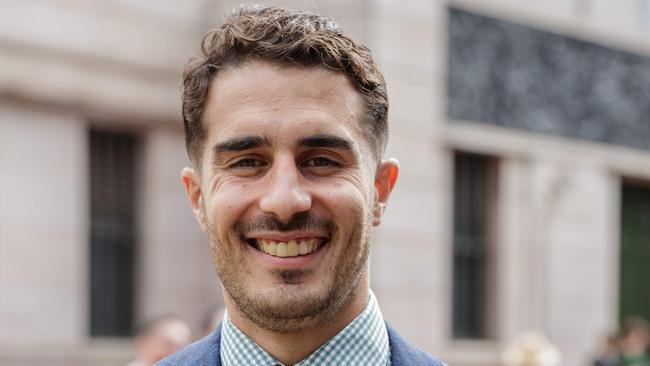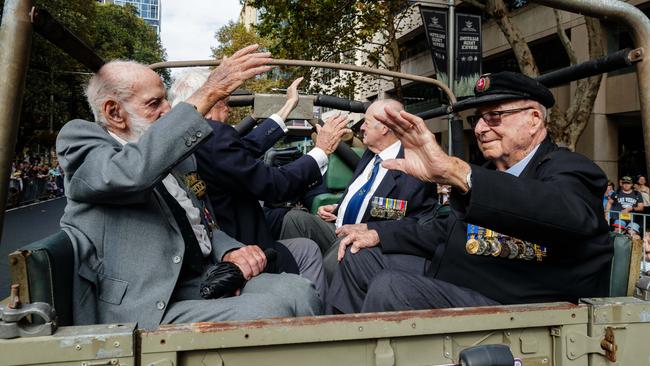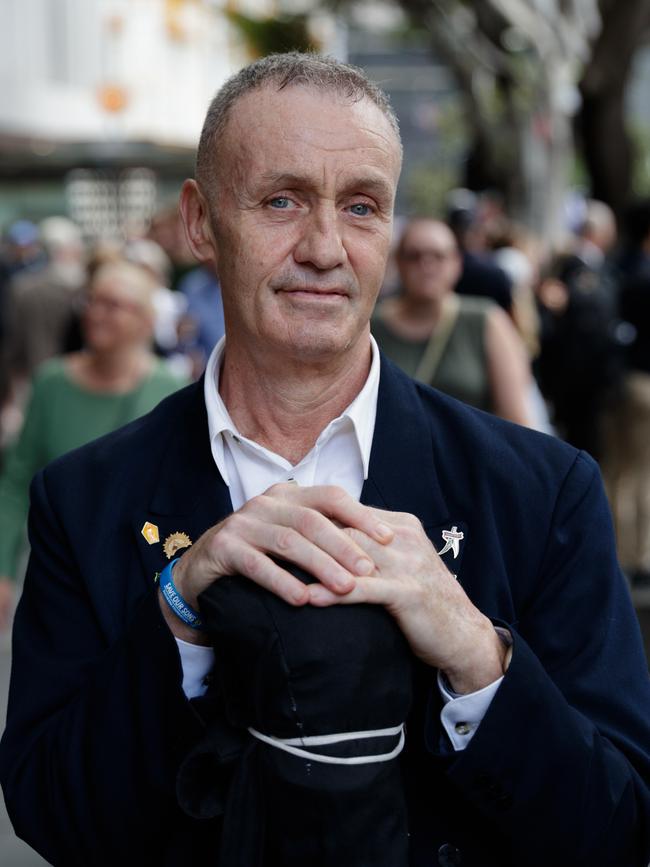My dad, the Anzac: young marchers remember family’s service
For Sam Willmott, enlistment was a fulcrum that shifted his understanding of Anzac Day, family and country.

Across three generations, four continents and eight decades, the Willmotts have enlisted for Australia. But for Sam Willmott, it took his own service in Afghanistan to put Anzac Day in context.
Mr Willmott, 30, was deployed to Afghanistan in 2015 and found his understanding of the national commemoration recontextualised.
“Both my grandfathers served in World War II. My dad’s father did a thousand days in the Pacific, and my mum’s father served for Italy,” Mr Willmott said.
“My dad did reserve service, no deployments, along with my uncle and my cousin, so it’s a big, rich family history.

“Acknowledging Anzac Day forever changed for me after I deployed. Before that it was an important day for me, but after deployment I realised this is our nation’s most important day. It’s as simple as that, the reality is we don’t have what we have without Anzac Day and its history.”
Mr Willmott ran logistics at Al Minhad Air Base in the United Arab Emirates and at Kandahar airfield in Afghanistan, working with the RAAF and the Afghan National Army, shifting from counter-terrorism to training and peacekeeping as the war progressed.
“It’s really important seeing how many people have come today to commemorate the spirit of the Anzac Day and its origins 110 years ago, as well as recognising some more contemporary veterans too, which is really special,” he said.
“It is an incredible sense of fulfilment continuing the tradition forged by Anzacs and my family.”
Sydney’s Anzac March was a cathartic commemoration for many with family histories of military service. Flag-bearer Ralph Greco, 63, makes the trek from Martin Place to Hyde Park every year to remember his father Vince.


The elder Mr Greco served in New Guinea with the 32nd Battalion, returning home “frail” and struggling to readjust.
He died from cancer when Ralph was 13.
The scars from New Guinea followed Vince home, having worked with asbestos building huts during the campaign and developing his fatal diagnosis as a consequence.
“He didn’t really say much. He just talked about how gruelling it was, how tough it was in the jungles,” Mr Greco said.
“When he got back from the war, my mum would say that he was quite frail. It took him a long time to adapt back to the conditions.
“The funny thing is, we’re Italian, right? Not many Italians who came out from Italy fought for Australia in the Second World War.”
Decades later, Mr Greco still finds new meaning in Anzac Day, and in the memory of his father, each time he marches.
“I march for my dad … the memory of him,” he said.
“I think about him every day. When I was younger, I didn’t think of him as much, but as you get older, it’s just there a little bit more.
“I’ll never forget.”






To join the conversation, please log in. Don't have an account? Register
Join the conversation, you are commenting as Logout